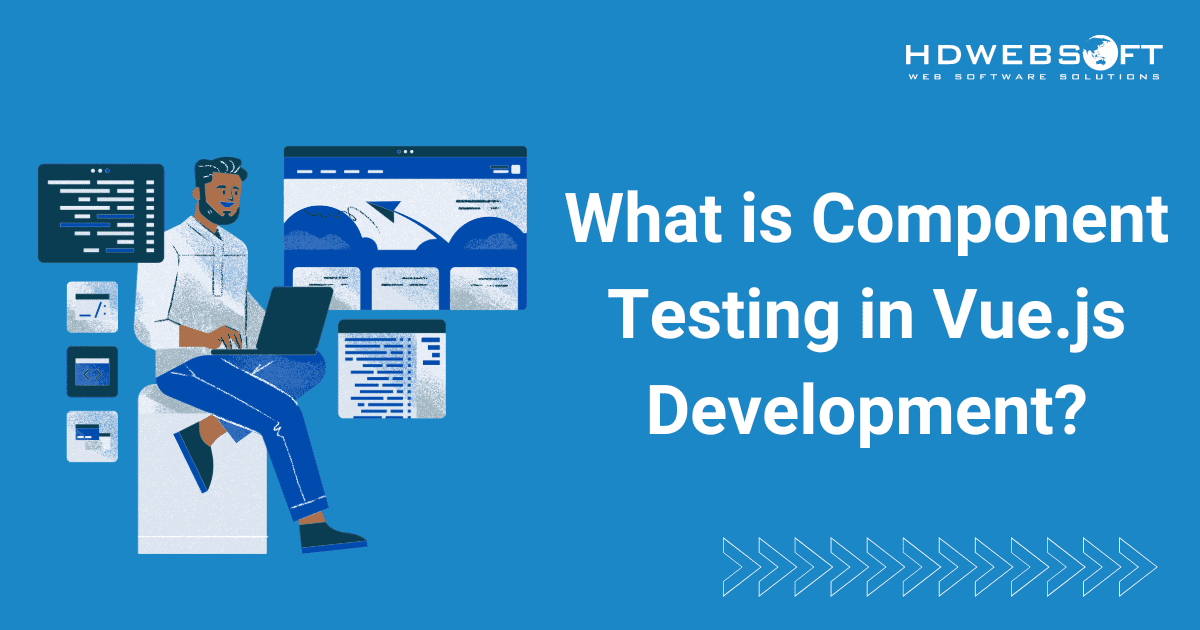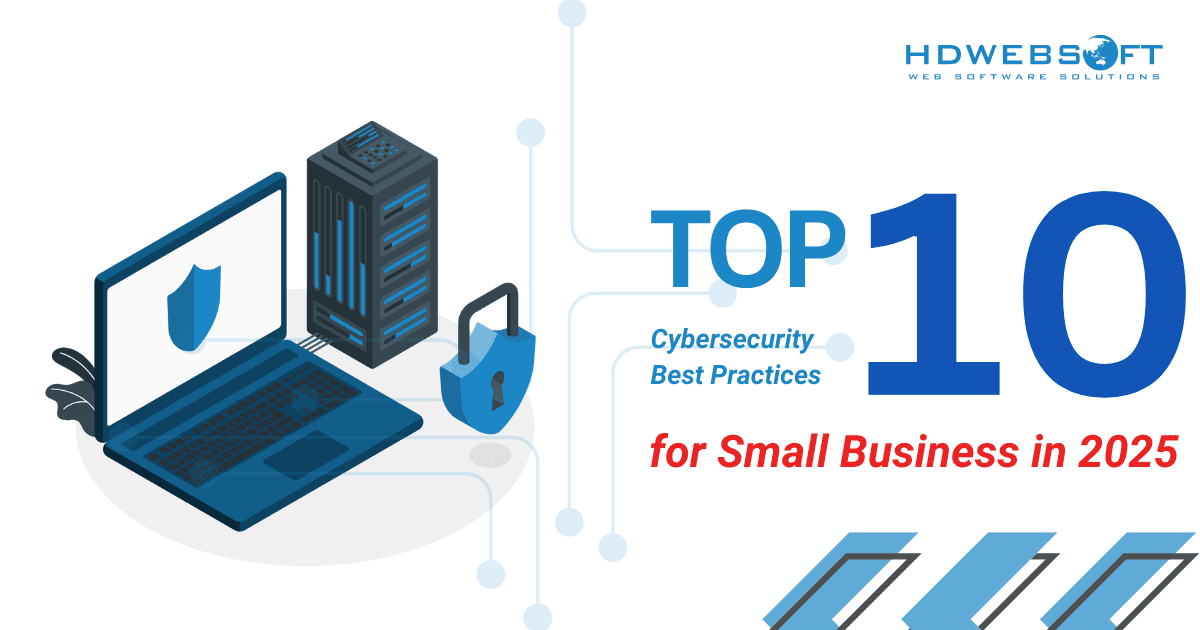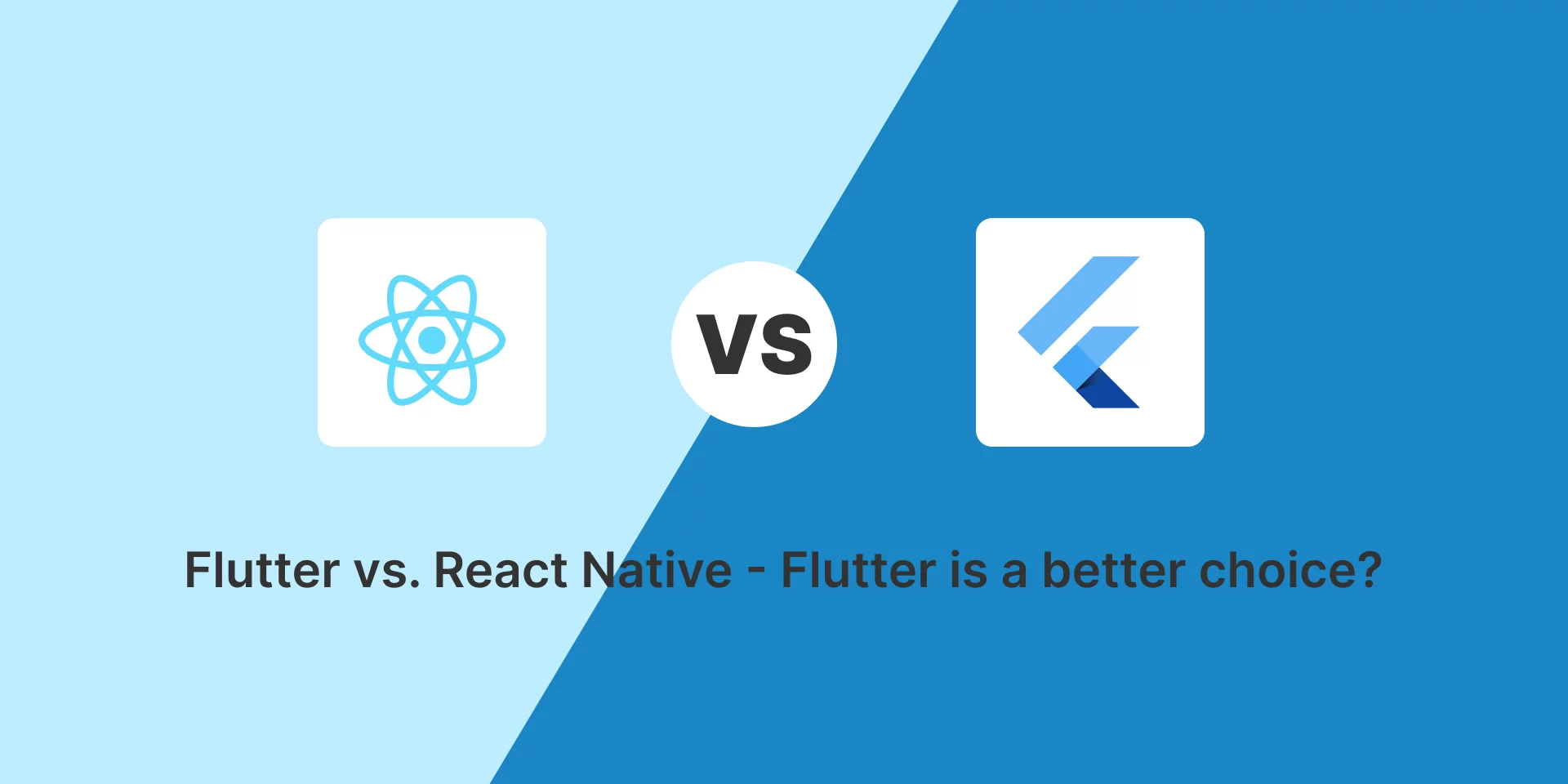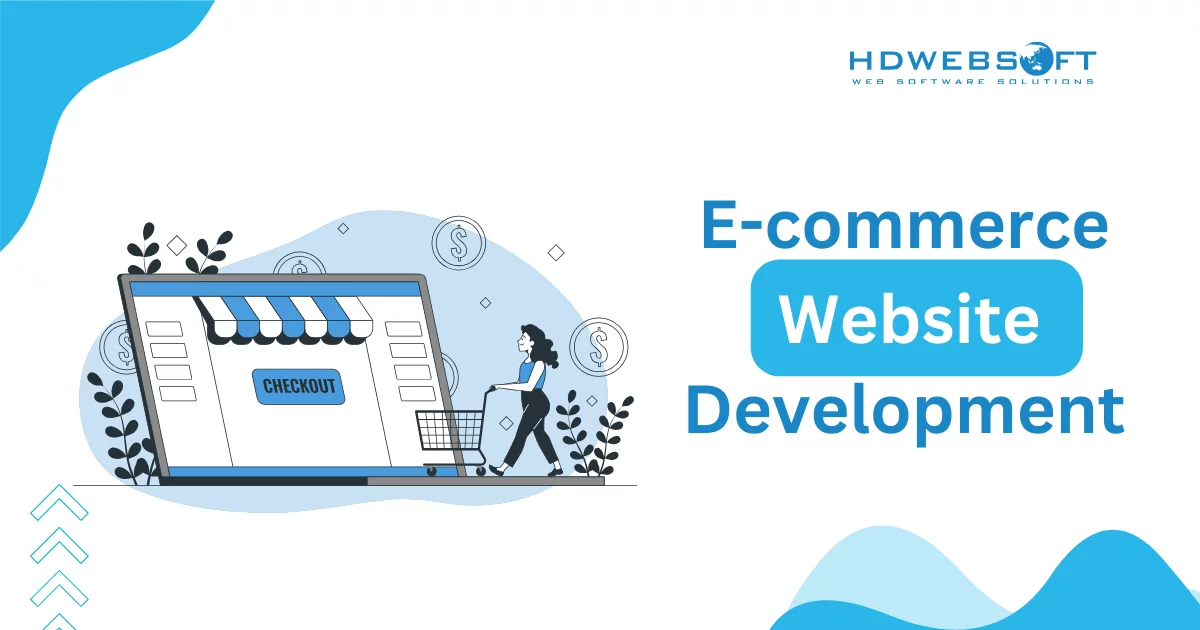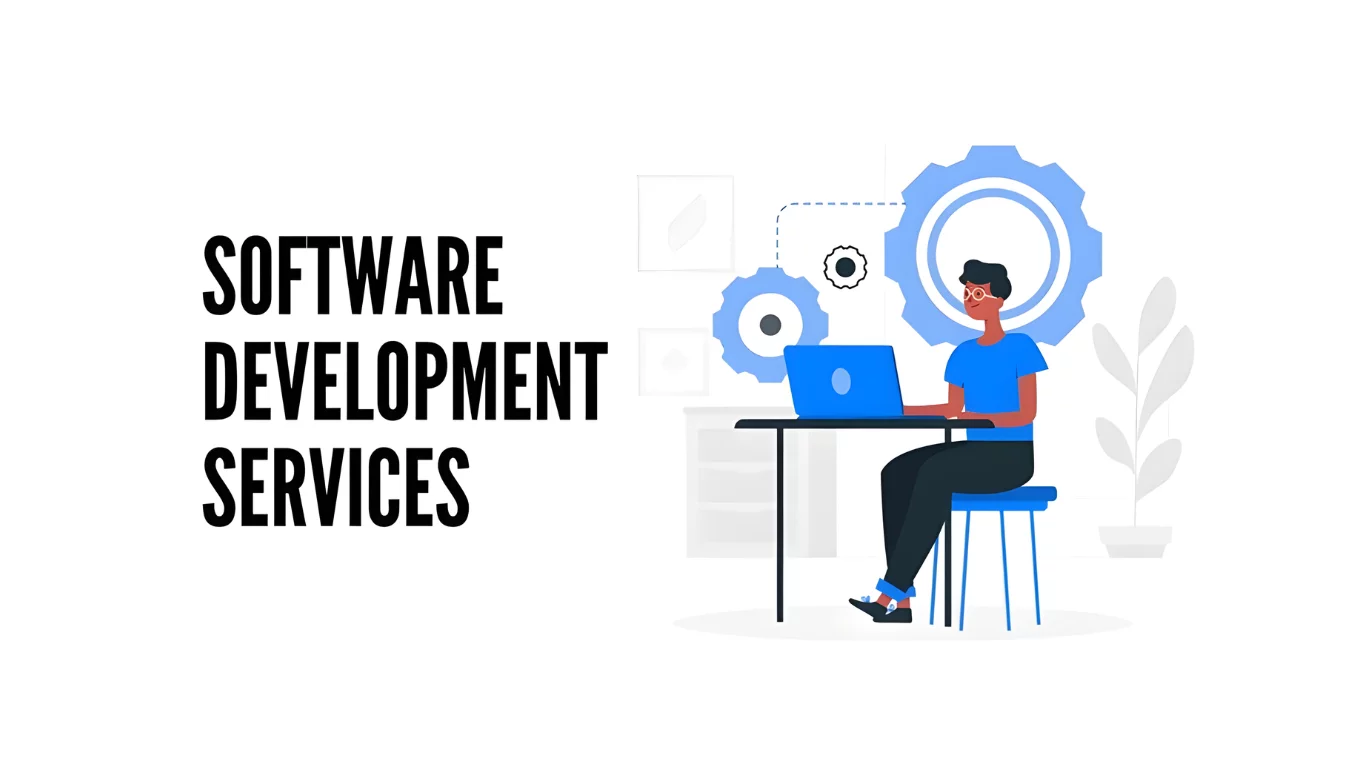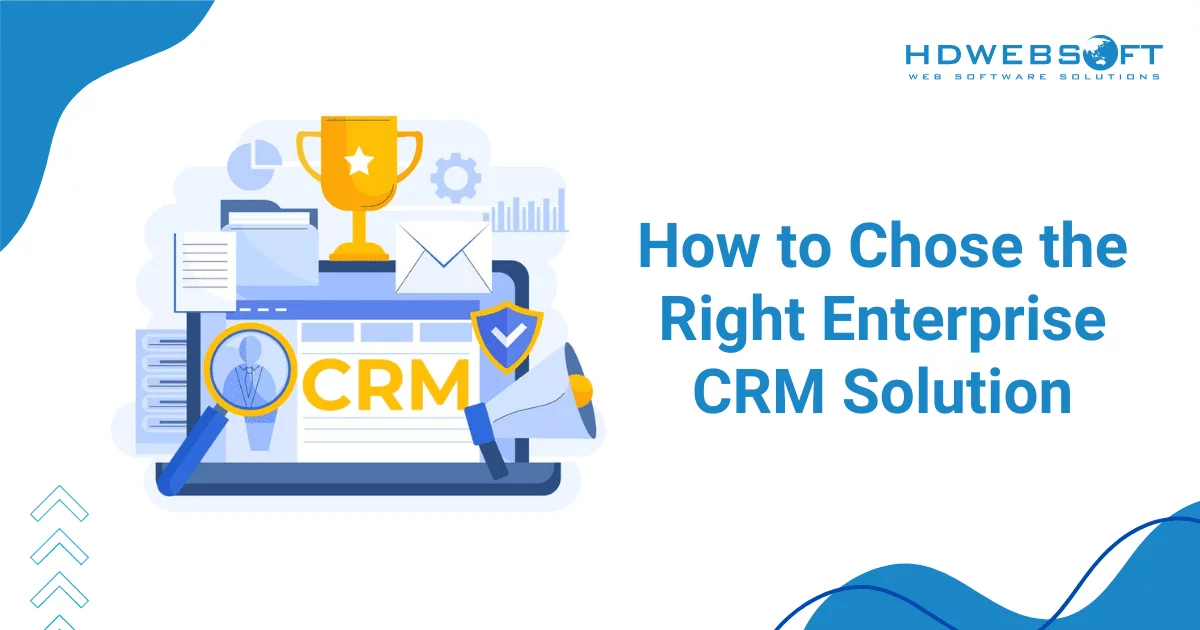
How to Chose the Right Enterprise CRM Solution
Enterprise CRM is essential in today’s fast-paced business environment, where managing customer relationships effectively is crucial for success. As companies grow, the need for comprehensive solutions to handle customer interactions and data becomes even more critical. Enterprise-level CRM systems have become indispensable tools for large businesses since they’re designed to optimize communication, optimize sales processes, and improve customer satisfaction.
In this blog, we’ll explore enterprise CRMs, the key features to look for, the benefits they offer, and how to choose the right solution for your business.
What is an Enterprise CRM?
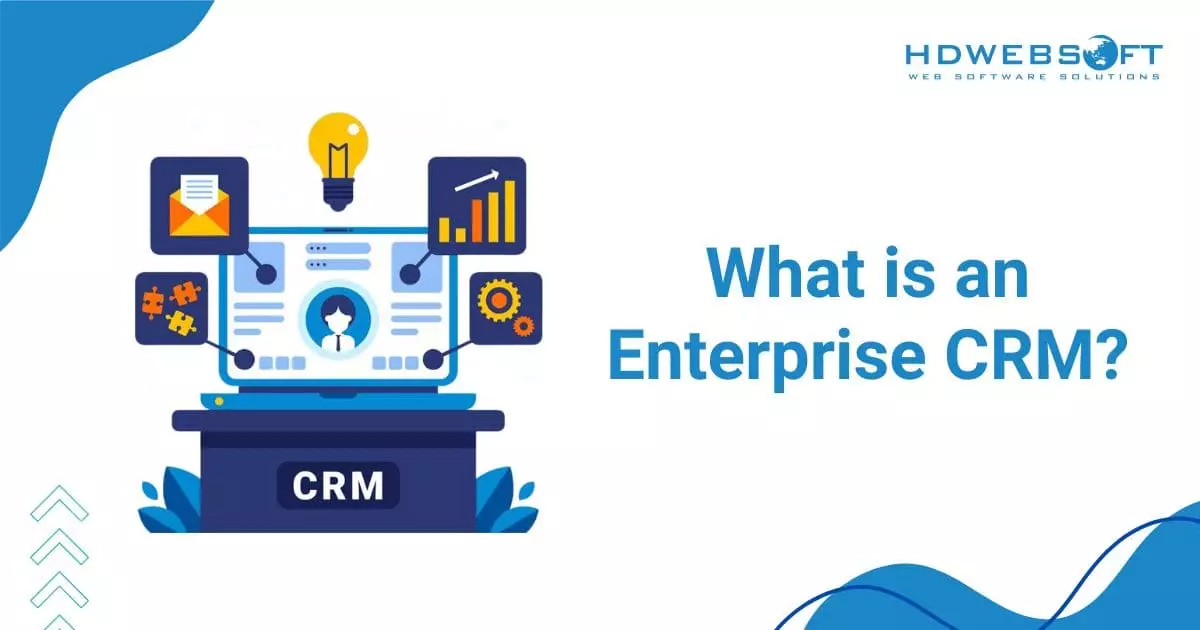
An enterprise CRM (Customer Relationship Management) is a software system that manages customer interactions and enhances the overall customer experience. In contrast to basic CRM systems tailored for smaller businesses, an enterprise-level CRM is built to handle the complexities and scale of large organizations.
Moreover, it provides a unified platform that integrates various departments, such as sales, marketing, customer service, and support. As a result, this ensures seamless communication and data sharing across the entire business.
The primary goal of an enterprise CRM is to centralize customer data, enabling businesses to track every interaction, identify customer needs, and personalize their approach. By doing so, it allows companies to build stronger relationships, improve customer satisfaction, and drive revenue growth.
In short, a corporate CRM system is not just a tool for managing customer relationships. It’s a powerful solution that helps businesses grow and thrive in today’s competitive market.
Features to look for in a CRM system
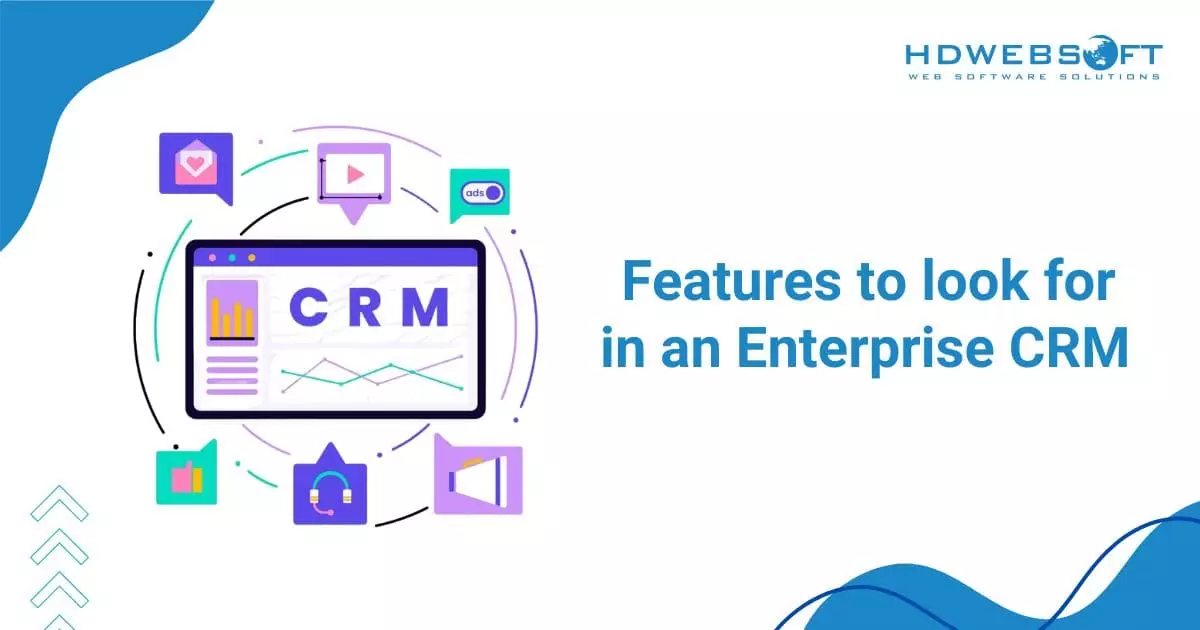
When choosing a large-scale CRM, it’s crucial to look for features that streamline your processes and enhance your customer relationships. The right CRM system should be versatile, scalable, and designed to support every aspect of customer engagement. Below are the key features to consider when selecting the ideal solution for your business:
Detailed Customer Profiles
A robust enterprise CRM should offer the ability to create and manage comprehensive customer profiles. In doing so, this feature allows your business to maintain a 360-degree view of every customer.
Furthermore, it captures important information such as previous interactions, purchase history, preferences, and any ongoing communications. By centralizing all this data, employees from different departments can access it in real-time. As a desirable result, they are able to offer more personalized and efficient service.
In addition, a detailed customer profile ensures that every interaction feels tailored to the individual, enhancing the overall customer experience. This level of insight also helps companies to identify trends and customer pain points. Ideally, it’s easier to offer targeted solutions.
Efficient Lead Capture
A strong corporate CRM should simplify the process of capturing leads from multiple sources. For example, these sources could include your website, email campaigns, social media, or phone inquiries. By automating lead capture, your sales team can respond to potential customers faster and more effectively.
Once leads are captured, the enterprise CRM can automatically categorize and assign them based on various factors like location, industry, or customer behavior. This helps your sales team focus on high-priority leads and increases the chances of converting them into long-term customers.
On top of that, efficient lead management can lead to significant improvements in sales performance. Data reports that 20% of businesses link lead nurturing to a direct boost in sales opportunities.
Sales Pipeline Management
Managing the sales pipeline is a critical function for any growing business. Therefore, a CRM should provide tools that enable teams to track deals at every stage of the sales process. In addition, sales pipeline management gives businesses a clear overview of where each lead or customer is in the journey. Specifically, this journey spans from the initial contact to the final sale.

An enterprise CRM provides businesses with insights from customers’ data that streamline the sales process.
Moreover, with visual dashboards, sales teams can monitor deal progress in real-time. They can also identify bottlenecks and make data-driven decisions to move leads through the pipeline more efficiently. This feature not only improves sales team productivity but also helps forecast revenue and predict future sales trends.
Automated Marketing Tools
Marketing automation is another must-have feature in enterprise CRM software. It helps businesses scale their marketing efforts without increasing manual tasks. Marketing automation allows you to set up workflows for email campaigns, social media posts, advertising efforts, and other marketing activities. For starters, these workflows automatically trigger based on customer behavior or predefined schedules.
With this, businesses can stay engaged with customers without overwhelming their marketing teams. It can be achieved by automating tasks like sending follow-up emails or promoting relevant products. Automation is essential in the advertising technology ecosystem, where efficiency and timely communication are crucial for success.
Additionally, this feature ensures consistent communication, keeping customers informed and interested in your offerings over time.
Streamlined Workflow Automation
Workflow automation is one of the key features that makes an enterprise CRM indispensable for large organizations. It enables businesses to automate repetitive tasks across various departments, saving time and reducing errors. For instance, you can set up workflows that automate follow-up emails after a sales call, trigger reminders for upcoming meetings, or route customer inquiries to the right team automatically.
Not only does this feature improve operational efficiency, but it also ensures that no task slips through the cracks. By freeing up employees to focus on more strategic activities, workflow automation helps businesses maintain high productivity levels, even as they scale.
Advanced Reporting and Analytics
Data is at the heart of any business, and a large-scale CRM should come with powerful reporting and analytics capabilities. With detailed reports, businesses can track key performance metrics like sales performance, customer satisfaction, and marketing ROI. Furthermore, real-time data visualization tools, like graphs and dashboards, make it easy to monitor trends and adjust strategies accordingly.
Moreover, predictive analytics in an enterprise CRM system can help forecast future customer behavior. They enable businesses to take proactive measures to address potential issues or capitalize on new opportunities. Having access to in-depth data empowers companies to make informed decisions, ultimately leading to better results and more efficient processes.
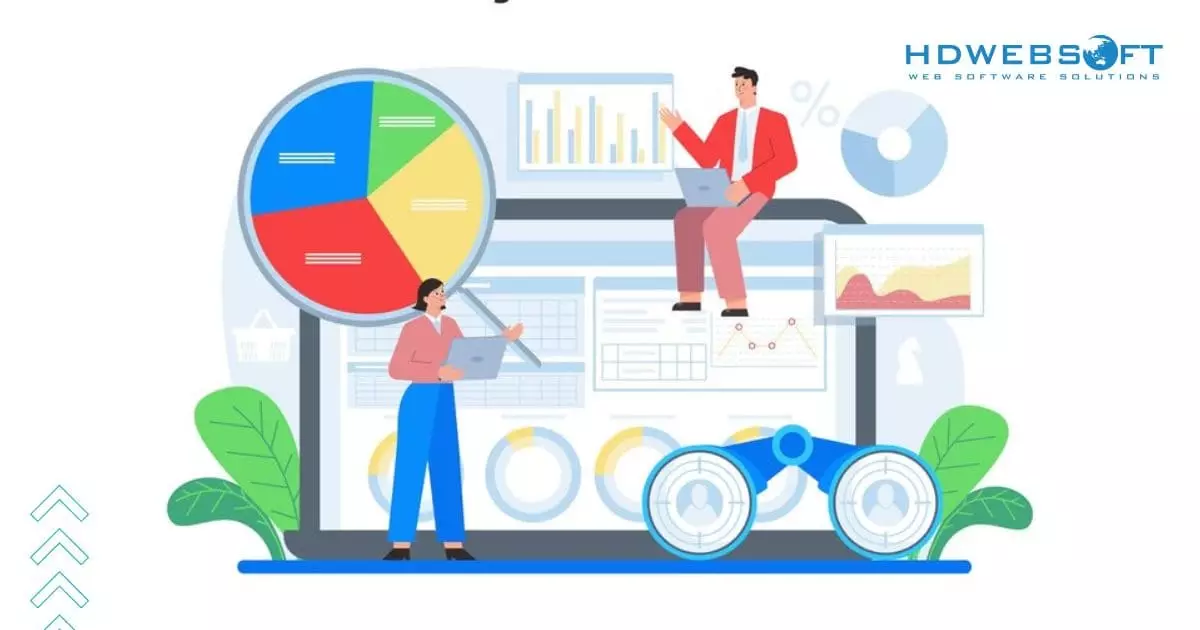
With the ability to generate detailed reports and predict customer behavior, enterprise CRM has become a great tool for business
Benefits of using a Large-scale CRM
As companies grow, the need for a system that can handle high volumes of data and enhance customer engagement becomes crucial. Here are the key advantages of using a large-scale solution:
Advanced High-Scale Functionality
One of the primary benefits of a corporate CRM is its ability to manage high volumes of customer data across multiple teams and departments. Large-scale CRMs are designed to handle thousands of users, making them ideal for organizations with a broad customer base. Additionally, they offer advanced functionalities like automation, reporting, and analytics that can accommodate the needs of businesses as they expand.
The high scalability of enterprise CRM allows them to adapt to the evolving demands of the business without compromising performance. Consequently, this flexibility is essential for companies experiencing rapid growth. As a result, it ensures that the system can continue to support increased customer interactions and data without disruptions.
Streamlined Sales Workflows
Sales processes can be complex, especially in large organizations with multiple sales teams. A large-scale CRM helps to optimize these workflows by automating routine tasks, such as lead assignments, follow-ups, and email reminders. By removing the manual work from these tasks, sales teams can focus on higher-value activities such as building relationships.
Additionally, CRMs provide a centralized platform where sales teams can track deal progress, monitor customer interactions, and receive real-time updates. This level of organization not only boosts productivity but also ensures that opportunities aren’t lost due to miscommunication or inefficiencies in the sales process.
A Shorter Sales Cycle
For large businesses, the sales cycle can be long and complicated, involving multiple touchpoints and decision-makers. A major advantage of using an enterprise CRM is that it shortens the sales cycle since it improves communication and efficiency throughout the process.
The system provides tools for automating workflows and tracking customer engagement with personalized follow-ups, which help move prospects faster. CRMs enable them to focus their efforts more strategically by offering sales teams a clearer view of where each lead stands in the sales funnel.
In fact, businesses that use CRM systems have reported a 14.6% increase in sales productivity. This is because the system allows them to close deals more quickly and efficiently.
Improved Customer Retention
Retaining customers is as important as acquiring new ones, and the CRM system significantly impacts customer satisfaction and loyalty. By providing a comprehensive view of each customer’s history and preferences, it enables businesses to offer personalized and timely support.
With the ability to automate follow-ups, send reminders, and track support tickets, enterprise CRM helps businesses resolve customer issues promptly. This will ensure a consistent customer experience. After all, happy customers are more likely to stay loyal. Meanwhile, retaining existing customers is often more cost-effective than acquiring new ones.

Enhanced Internal Collaboration
Large-scale organizations often have multiple teams working across different departments, making collaboration a challenge. A CRM system fosters better internal communication by centralizing customer data and making it accessible to all relevant teams.
All the while, the shared access to customer information ensures that everyone is on the same page. It will certainly reduce the chances of miscommunication or duplicate efforts.
For instance, sales teams can see if a customer has an open support ticket. By then, they can tailor their approach accordingly. This seamless flow of information improves efficiency and helps teams work together to deliver a unified customer experience.
How to choose a suitable CRM solution
Selecting the right enterprise CRM solution is a critical decision that can significantly impact the growth and efficiency of your business. Given the wide array of CRM systems available, it’s important to choose one that aligns with your business goals. Here’s a guide on how to choose the most suitable large-scale CRM for your organization.
Understand Your Business Requirements
The first step in choosing a corporate CRM system is clearly defining your business requirements. What are your goals in implementing a CRM? Do you need better customer insights, improved sales processes, or streamlined communication between departments? Understanding your pain points and objectives will help you identify the features that are most important for your business.
For instance, if you want to enhance customer retention, you’ll want a system with strong customer support and follow-up tools. On the other hand, if your focus is on sales growth, features like sales pipeline management and lead tracking will be crucial. Evidently, outlining your requirements can help narrow your options and focus on enterprise CRM software that meets your needs.
Evaluate the Scalability of the CRM
As your business grows, your CRM needs to grow with it. It’s important to choose a system that offers scalability. It must handle increasing amounts of data, users, and customer interactions without compromising performance. Choose a CRM that supports future growth and ensures that you won’t need to switch systems as your company expands.
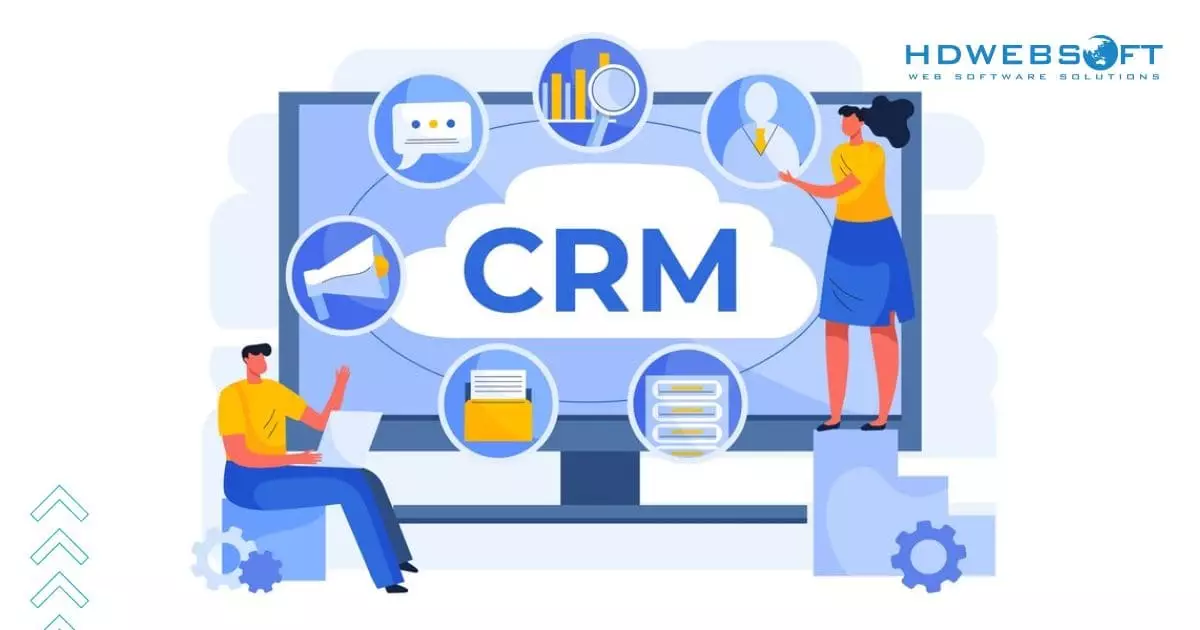
Scalability is an important feature of an enterprise CRM system.
Moreover, look for a solution that allows you to add new users, integrate additional tools, and expand its functionality. The ability to scale with your organization is critical for long-term success, especially for businesses experiencing rapid growth.
Assess Integration Capabilities
A suitable large-scale CRM should integrate effortlessly with other software and tools your business relies on. The system should smoothly integrate with your existing systems to ensure smooth data flow across departments.
Without proper integration, your teams may end up duplicating work or losing important data. The right enterprise CRM will function as a central hub where information from different departments can come together. It’ll give you a holistic view of your customers and business operations.
Further Reading: What to Look for in Store Management Software.
Consider User Experience and Customization
A CRM is only as good as its usability. If your team finds the system difficult to navigate, they won’t use it to its full potential, leading to inefficiencies. Consequently, a user-friendly solution with intuitive features is key to adoption and overall productivity.
Not to mention, customization is another crucial factor. Your business processes are unique, and your CRM should allow for customization to fit those specific workflows. The key is to look for a system that offers customizable features so it can be tailored to your needs. A personalized experience makes it easier for your employees to adopt the system and get the most out of it.
Evaluate Data Security and Compliance
Data security is a critical concern for any business handling sensitive customer information. When selecting an enterprise CRM, you need to ensure it adheres to stringent security standards and complies with regulations. This compliance is crucial depending on your industry and location.
It’s best to seek features such as data encryption, user access controls, and regular backups to safeguard customer data. Additionally, make sure the provider offers reliable customer support to assist in case of any security issues or system malfunctions.
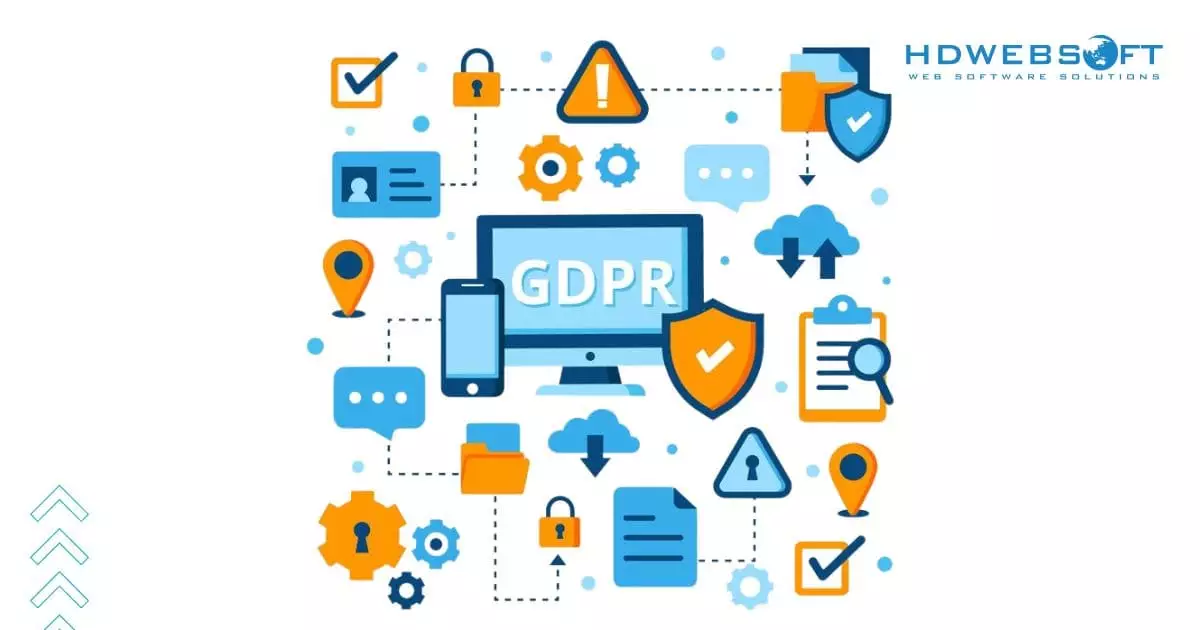
Depending on your location and industry, you will have to follow compliances such as GDPR or CCPA.
Test and Compare CRM Solutions
Finally, before making a decision, it’s important to test out different large-scale CRM solutions through demos or free trials. This hands-on experience will allow you to evaluate whether they meet your specific needs and are user-friendly.
It’s vital to compare different options based on factors like functionality, pricing, customer support, and user reviews. Engage your team in the testing process to gather feedback on the system’s usability and potential impact on their day-to-day tasks.
Let’s note that a CRM that works well for one organization may not be suitable for another. Therefore, it’s important to find one that fits your unique requirements.
Help Your Business Grow with Enterprise CRM software
Implementing an enterprise CRM system is no longer optional for growing businesses – it’s essential. By centralizing customer data, streamlining workflows, and providing actionable insights, CRMs empower businesses to offer better customer experiences and drive growth. Take note of all the important features that we’ve provided above when selecting a CRM solution for your business.
Remember, there’s no one-size-fits-all solution when it comes to software. Whatever your choice is, investing in the right CRM will help future-proof your business, ensuring you’re ready for continued success.
To gain a deeper understanding of your prospects, you need an advanced CRM solution that can grow with your business. HDWEBSOFT is ready to assist you in choosing and customizing a market-available CRM solution. Alternatively, we can develop a tailored CRM software that fully aligns with your requirements. Contact us today




